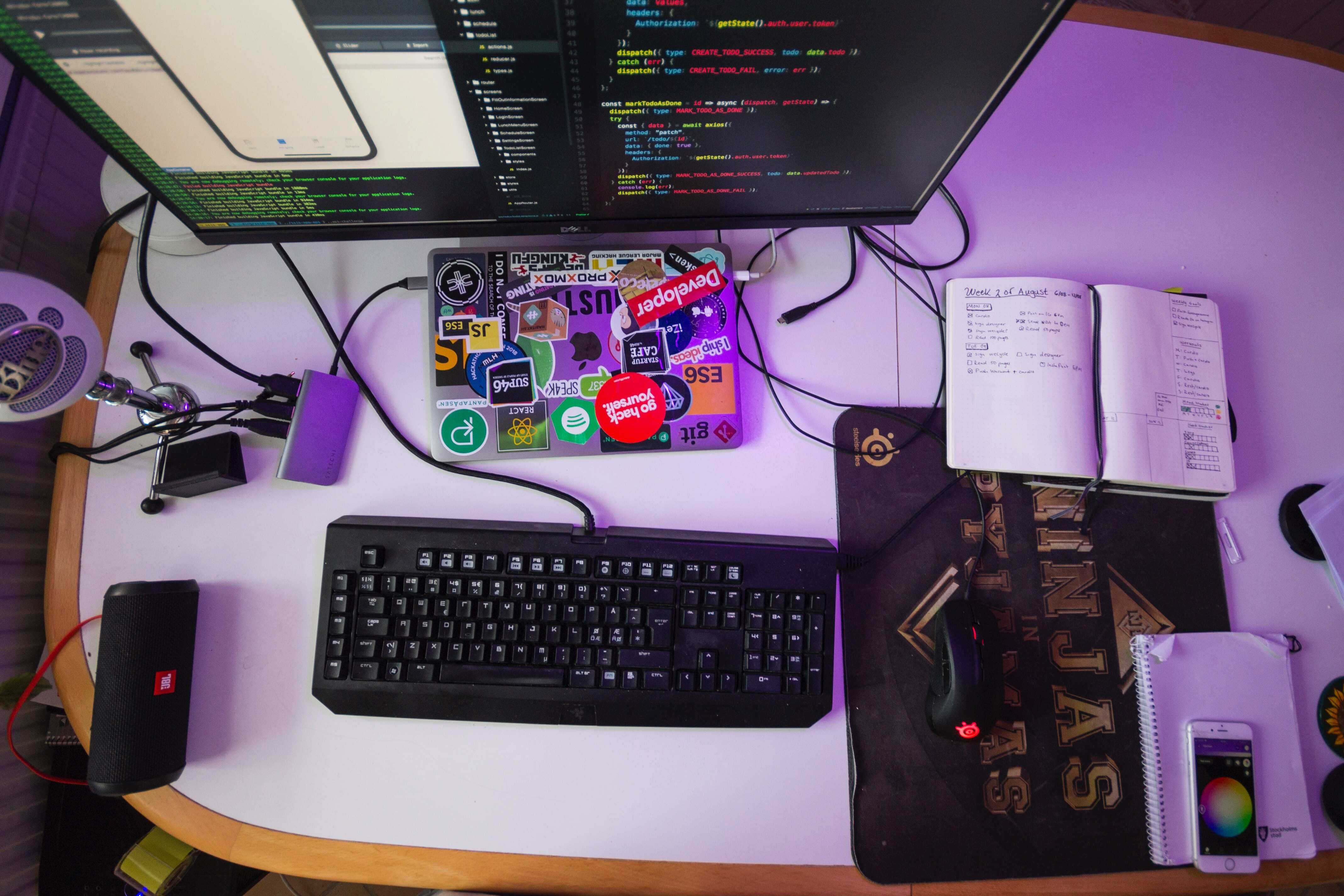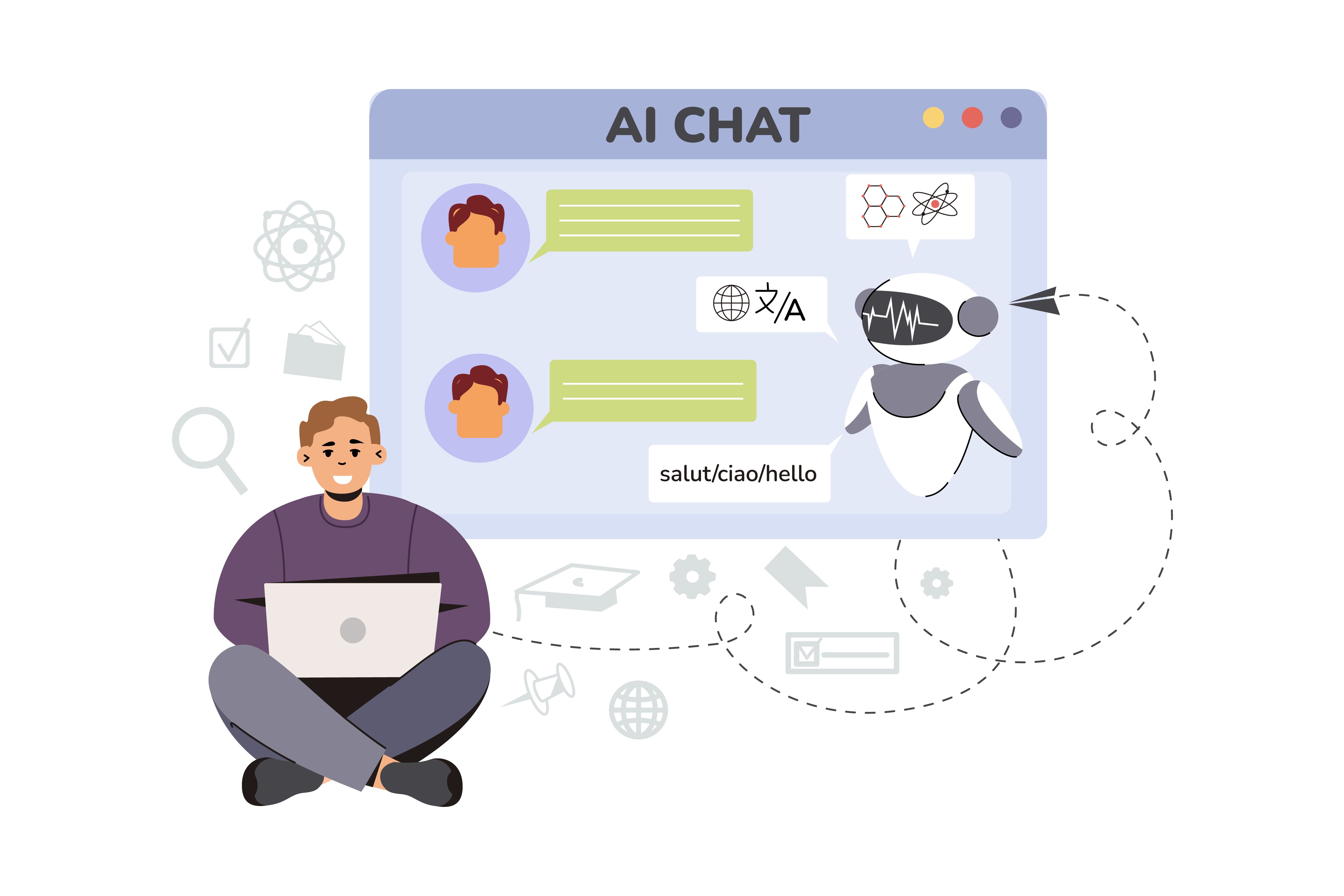Custom Chatbots for Niche Industries: Tailoring AI to Your Market Anonymous

Key Points
67% of consumers worldwide used a chatbot for customer support in the past year, yet most niche industries still rely on generic solutions that fail to address their unique needs.
Custom-trained chatbots can reduce response times by 90% while handling up to 80% of routine customer inquiries without human intervention.
Generic chatbot implementations have a 43% failure rate in niche industries due to lack of industry-specific knowledge and terminology.
Businesses using industry-tailored AI chatbots report 3.5x higher customer satisfaction scores compared to those using off-the-shelf solutions.
Custom chatbots trained on niche industry data can increase conversion rates by 25-40% by providing highly relevant, context-aware responses.
73% of customers expect companies to understand their unique needs, making personalized AI interactions critical for competitive advantage.
Solutions like Anablock's custom chatbot development specialize in creating AI assistants tailored specifically to your industry's requirements.
Overview
The chatbot revolution has arrived, but there's a critical problem: most businesses in specialized industries are trying to force square pegs into round holes. While generic chatbots flood the market with one-size-fits-all solutions, niche industries from veterinary practices to specialty manufacturing are discovering that their unique needs require something far more sophisticated.
Generic chatbots simply don't understand the nuances of specialized industries. They can't speak the language of your customers, they don't grasp industry-specific regulations, and they certainly can't replicate the expertise that sets your business apart. This disconnect doesn't just frustrate customers, it actively costs you business.
Custom chatbots represent a paradigm shift for niche industries. By tailoring AI to understand your specific market, terminology, compliance requirements, and customer pain points, these specialized assistants become powerful extensions of your team rather than awkward digital greeters that send customers running for the phone.
This blog post by Anablock explores how custom AI chatbots are transforming niche industries, the critical mistakes businesses make with generic implementations, and how to build a chatbot solution that truly serves your unique market.
1. The Generic Chatbot Trap: Why Off-the-Shelf Solutions Fail Niche Industries
The biggest mistake niche businesses make is assuming that popular chatbot platforms will automatically understand their industry. These generic solutions are optimized for broad, common use cases, leaving specialized businesses with frustrating gaps in functionality.
Consider a veterinary emergency clinic using a standard retail chatbot. When a panicked pet owner asks, "My dog ate chocolate, what do I do?" a generic bot might offer to schedule an appointment or check business hours. A custom-trained veterinary chatbot would immediately recognize this as a medical emergency, provide critical first-response information, and escalate to immediate human contact or emergency protocols.
The Failure Points of Generic Chatbots:
- Lack of industry-specific terminology and jargon recognition
- Inability to understand compliance and regulatory requirements
- Missing critical workflow integrations unique to your industry
- Generic response patterns that feel impersonal and unhelpful
- No understanding of your specific customer journey and pain points
- Failure to capture and qualify leads according to industry standards
- Inability to handle complex, multi-step processes common in specialized fields
The Solution: Invest in custom chatbot development that begins with deep industry analysis. Partner with developers like Anablock who specialize in building AI solutions from the ground up, trained specifically on your industry's knowledge base, terminology, and customer interaction patterns. The result is a chatbot that doesn't just respond, it understands.
2. Neglecting Industry-Specific Training Data
The power of any AI chatbot lies in its training data, yet most niche businesses fail to leverage their most valuable asset: their own accumulated industry knowledge and customer interaction history.
A chatbot trained on generic datasets will provide generic answers. In specialized industries where precision, expertise, and trust are paramount, generic responses destroy credibility faster than having no chatbot at all. Customers can immediately tell when they're interacting with AI that doesn't truly understand their needs.
Common Training Data Mistakes:
- Using only FAQ pages instead of actual customer conversation histories
- Failing to incorporate industry-specific case studies and scenarios
- Neglecting to include regulatory and compliance language
- Missing internal knowledge base documentation
- Not updating training data as industry standards evolve
- Ignoring negative examples and edge cases specific to your field
- Overlooking technical manuals and product specifications
3. Ignoring Compliance and Regulatory Requirements
In regulated industries like healthcare, finance, legal services, and insurance, compliance isn't optional, it's mandatory. Yet many businesses implement chatbots without considering how AI interactions must adhere to industry regulations.
Generic chatbots are compliance nightmares waiting to happen. They might inadvertently violate HIPAA in healthcare, breach financial privacy regulations, provide unauthorized legal advice, or fail to include required disclosures in insurance conversations.
Critical Compliance Considerations:
- HIPAA compliance for healthcare-related chatbots
- Financial privacy regulations (GLBA, PCI-DSS)
- Legal ethics and unauthorized practice of law concerns
- Insurance disclosure requirements
- FDA regulations for medical device companies
- Professional licensing and credential verification
- Data retention and right-to-deletion requirements
4. Failing to Integrate with Industry-Specific Tools
Niche industries rely on specialized software systems that generic chatbots can't access. Without proper integration, your chatbot becomes a disconnected information provider rather than a functional business tool.
A custom machinery manufacturer might use specialized CAD software, inventory management systems unique to manufacturing, and industry-specific CRM platforms. A generic chatbot can't pull real-time inventory data, access technical specifications, or update order management systems. It becomes a glorified FAQ instead of a true business assistant.
Essential Integrations for Niche Industries:
- Industry-specific CRM and practice management systems
- Specialized inventory and supply chain platforms
- Compliance and documentation management tools
- Custom ERP systems built for your industry
- Niche scheduling and appointment systems
- Industry-specific payment processors
- Technical databases and specification libraries
- Regulatory reporting systems
5. Overlooking the Unique Customer Journey in Your Niche
Every industry has a distinct customer journey with specific decision-making factors, pain points, and conversion paths. Generic chatbots follow universal customer journey assumptions that rarely align with specialized industry realities.
Consider the difference between buying shoes online versus procuring specialized industrial equipment. The shoe purchase might be impulsive and image-driven. The industrial equipment purchase involves multiple stakeholders, complex technical specifications, compliance certifications, long-term service contracts, and ROI calculations spanning years. A generic e-commerce chatbot designed for simple transactions will fail spectacularly in the industrial equipment context.
Niche Journey Considerations:
- Length of sales cycles (minutes vs. months)
- Number of decision-makers and approval processes
- Technical knowledge levels required
- Emotional vs. analytical decision factors
- Regulatory and compliance checkpoints
- Post-purchase support complexity
- Industry-specific objections and concerns
6. Missing Opportunities for Specialized Lead Qualification
In niche industries, not all leads are created equal. Generic chatbots use basic qualification criteria, name, email, phone number, missing the industry-specific factors that determine whether a lead is worth pursuing.
The Qualification Problem: A specialty medical device company needs to know if a lead represents a hospital, clinic, or individual practitioner; whether they have the necessary facilities and certifications; what their procurement timeline is; and whether they understand the regulatory requirements. Generic lead capture forms miss these critical qualifications entirely.
Industry-Specific Qualification Factors:
- Professional credentials and licensing
- Facility capabilities and certifications
- Regulatory compliance status
- Budget and procurement authority
- Technical compatibility requirements
- Geographic service areas and shipping limitations
- Industry experience and knowledge level
- Existing systems and integration needs
7. Neglecting Post-Implementation Training and Optimization
Many businesses treat chatbot deployment as a "set it and forget it" technology. In reality, custom chatbots require ongoing refinement, especially in niche industries where customer needs and industry standards evolve.
The Stagnation Problem: Customer language changes, new products launch, regulations update, and competitor offerings shift. A chatbot that isn't continuously trained on these changes becomes increasingly ineffective over time. In fast-evolving niche industries, a six-month-old chatbot without updates can feel completely out of touch.
Ongoing Optimization Requirements:
- Regular analysis of chatbot conversation transcripts
- Identification of misunderstood queries and edge cases
- Updates for new products, services, and offerings
- Refinement based on customer feedback and satisfaction scores
- Integration of new industry terminology and jargon
- Adjustment to changing compliance requirements
- Performance testing against business objectives
The Role of Professional Chatbot Development
Building a truly custom chatbot for a niche industry requires specialized expertise that goes beyond basic chatbot platforms. This is where professional development services become essential. Anablock specializes in creating custom AI chatbots tailored to specific industries, combining deep technical expertise with industry-specific understanding.
Professional chatbot development provides:
- Comprehensive industry analysis and customer journey mapping
- Custom training data development from your unique knowledge base
- Integration with specialized industry software and systems
- Compliance and regulatory implementation for your sector
- Ongoing optimization and performance monitoring
- Advanced natural language processing tuned to industry terminology
- Scalable architecture that grows with your business
Measuring Custom Chatbot Success
To ensure your custom chatbot delivers ROI, track these industry-relevant metrics:
- Response accuracy rate for industry-specific queries
- Customer satisfaction scores (CSAT) for chatbot interactions
- Lead qualification rate and lead quality metrics
- Conversion rate from chatbot conversations
- Average handling time for customer inquiries
- Escalation rate to human representatives
- Cost per interaction compared to human support
- Customer retention and repeat engagement rates
Use analytics dashboards to monitor these metrics continuously, identifying both successes and areas requiring refinement.
Industry-Specific Use Cases
Custom chatbots are transforming diverse niche industries:
- Veterinary Practices: Handling emergency triage, appointment scheduling with pet-specific details, medication refill requests, and post-procedure care instructions.
- Specialty Manufacturing: Providing real-time inventory availability for custom parts, generating technical specifications, guiding product configuration, and initiating complex quote processes.
- Legal Services: Qualifying potential clients based on case type and jurisdiction, gathering initial case information while maintaining attorney-client privilege, scheduling consultations, and providing general legal information with proper disclaimers.
- Healthcare Specialties: Managing appointment scheduling with insurance verification, providing pre-visit instructions specific to procedures, answering post-treatment care questions, and triaging symptoms for appropriate urgency levels.
- Professional Services: Qualifying leads based on project scope and budget, scheduling discovery calls, gathering project requirements systematically, and providing service-specific preliminary information.
Future Trends in Custom Chatbots for Niche Industries
The chatbot landscape continues evolving rapidly, with several trends particularly relevant for specialized industries:
- Multimodal AI Interactions: Chatbots that can analyze images, diagrams, and documents alongside text conversations, crucial for industries requiring visual communication.
- Predictive Intelligence: AI that anticipates customer needs based on industry patterns, offering proactive assistance before customers even ask.
- Voice-First Interfaces: Natural voice interactions optimized for hands-free industries like healthcare, manufacturing, and field services.
- Hyper-Personalization: AI that remembers individual customer histories, preferences, and previous interactions, creating continuity across touchpoints.
- Advanced Sentiment Analysis: Understanding emotional context and urgency levels, particularly important in healthcare, veterinary, and emergency service industries.
Conclusion
Generic chatbots are failing niche industries because they were never designed for specialized markets. The solution isn't abandoning AI customer interaction, it's embracing custom development that truly understands your industry's unique requirements.
By investing in custom chatbot solutions that incorporate industry-specific training data, compliance requirements, specialized integrations, and tailored customer journeys, businesses in niche markets can deliver AI experiences that don't just meet customer expectations, they exceed them in ways generic solutions never could.
The competitive advantage goes to businesses that recognize AI chatbots as strategic assets requiring thoughtful customization, not plug-and-play commodities. Services like Anablock's custom chatbot development provide the specialized expertise needed to build AI assistants that truly serve your unique market.
Remember, your industry isn't generic, so why should your chatbot be? The businesses thriving in niche markets tomorrow will be those investing in custom AI solutions today. Start building your tailored chatbot strategy now, and transform customer interactions from frustrating to phenomenal while leaving competitors with their generic bots far behind.
Want to learn more about our healthcare solutions?
Discover how our AI technology can transform your healthcare practice.
Related Articles



